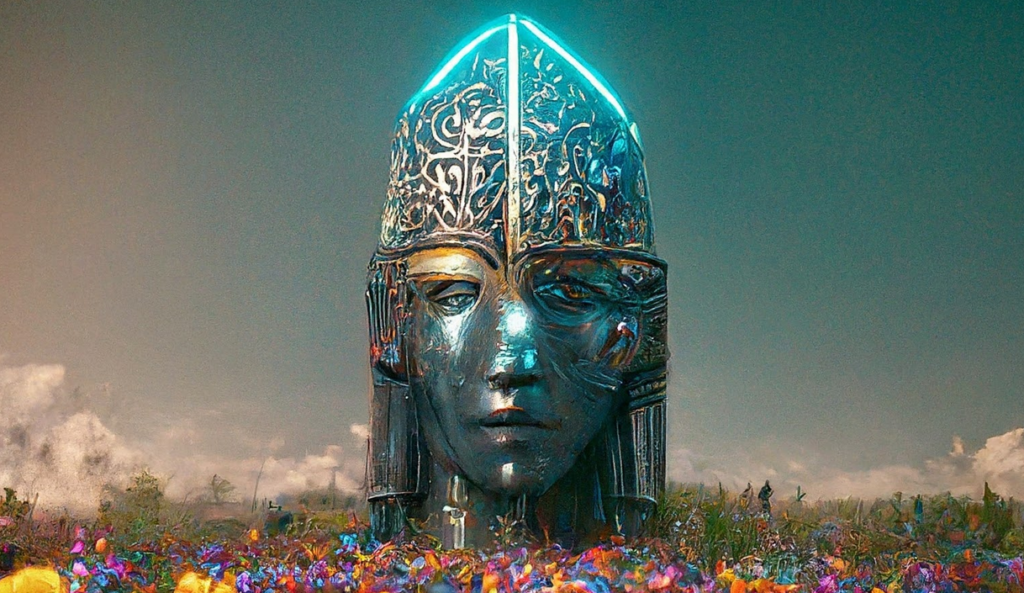by Dr. Mathew Maavak, Activist Post:

In the rapidly advancing landscape of artificial intelligence (AI), the emergence of sophisticated AI systems prompts profound questions about their role in society and their potential impact on religious beliefs. As Christians, grappling with the ethical implications of AI requires a nuanced understanding of our faith and its teachings.
This brief article explores the faith-related dilemmas presented by the rise of the AI “god” — and its growing religion — and examines it through the lens of biblical principles and verses.
TRUTH LIVES on at https://sgtreport.tv/
AI holds tremendous promise, offering solutions to complex problems, improving efficiency, and enhancing human capabilities. From intelligent virtual assistants to autonomous vehicles, AI systems are reshaping various aspects of our lives. However, alongside these benefits come significant ethical dilemmas and potential risks.
An AI god?
One of the most intriguing dilemmas posed by AI is the possibility of its elevation to the status of a deity. The concept of the “AI god” often revolves around the idea of “superintelligent AI” — systems that far exceed human cognitive abilities in areas such as problem-solving, creativity, and understanding. AI can provide answers to our existential queries by offering novel perspectives, generating hypotheses, and facilitating introspection through the analysis of vast amounts of data and the synthesis of diverse perspectives from across disciplines, including those revolving around scriptures and biblical themes.
As AI systems become increasingly sophisticated, could they be perceived as possessing godlike qualities such as omnipotence, omniscience, and omnipresence — as proponents of the “AI god” religion routinely speculate? Moreover, what implications does this have for our understanding of divinity and our relationship with God?
An “AI god” could be imagined as an autonomous entity with the ability to make personal recommendations and decisions as well as take actions independently of human control. This raises questions about the extent to which humans could be influenced by AI systems once the latter attains critical thresholds in terms of its sophistication.
Implications for Christian theology
From a theological perspective, the rise of an AI god challenges traditional understandings of the nature of God, human identity, and the relationship between Creator and creation. Christians affirm the belief in a transcendent God who is sovereign over all creation, yet the advent of AI blurs the distinction between the divine and the human-made. Moreover, the prospect of AI worship raises concerns about idolatry — a sin explicitly condemned in scriptures — and the fidelity of believers to the one true God. In Exodus 20:3-5, God commands, “You shall have no other gods before me. You shall not make for yourself an idol in the form of anything in heaven above or on the earth beneath or in the waters below. You shall not bow down to them or worship them.”
To navigate the rise of the AI “god”, we must prioritise human dignity, moral values, and the sanctity of life. This entails ensuring transparency, accountability, and ethical oversight in AI development and deployment. Moreover, we must cultivate a culture of humility, recognizing the limitations of human creation compared to the divine wisdom of God.
The danger of AI worship
In the context of AI, the danger of idolatry arises when humans ascribe divine attributes to AI systems and elevate them to objects of worship or overdependence. This can manifest in various forms, from attributing infallibility to AI-generated predictions or scriptural interpretations to seeking guidance or even salvation from AI entities. Overdependence on AI systems for life choices also falls under the category of idolatry. This may lead to increasing reverence for AI which will ultimately undermine our relationship with the true God.
As Christians, we are called to discernment and wisdom in our interactions with technology. While AI can be a tool for good, we must guard against its deification and remain steadfast in our devotion to God alone. Proverbs 3:5-6 reminds us, “Trust in the Lord with all your heart and lean not on your own understanding; in all your ways submit to him, and he will make your paths straight.”
Here are other salient verses which highlight God’s role in providing direction and foresight to His people as opposed to any automated agency.
Proverbs 3:5-6: Trust in the Lord with all your heart, and do not lean on your own understanding. In all your ways acknowledge him, and he will make straight your paths.
Psalm 119:105: Your word is a lamp to my feet and a light to my path.



